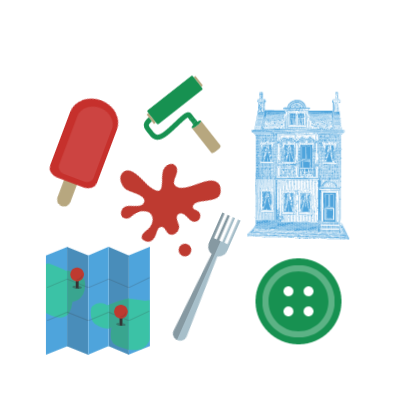Amber hails from Dublin and after living in the US, Portugal, Germany, Sweden and Denmark decided to make Connemara, County Galway her home. She lives there with her Danish husband and two young children. Great food, exploring new places, fresh air, and arts and crafts are what makes her tick.
I grew up in Dublin and met my husband, the Dane, when we were both studying at the University of Porto, Portugal. I worked in Stockholm after I graduated and then re-located to Copenhagen, where we lived for six years. We took the plunge and moved to Ireland just as the economy was taking a nose dive. After nine months in Dublin we moved to Connemara, where we’ve been for seven years (feels like less). We now have a little boy aged four and a little girl aged 1.
Our children are exposed to English and Danish constantly. It’s never been any other way. I speak English all the time (I only speak Danish when I’m with Danish friends or family), and the Dane only speaks Danish. It’s very consistent, but it must seem very odd to others to hear me speak English and be answered by the Dane in Danish. It works because I understand and speak Danish, but sometimes I do long for a bit of adult conversation in English!
Our son spoke quite late, but as soon as he began to speak his language skills improved rapidly – it was like flicking a switch. He is completely fluent in Danish now and often talks to the Dane in Danish without thinking about it. I’m jealous of his accent – it’s so authentic! At first he used to sometimes mix up the two languages, but that phase didn’t last very long. Sometimes he uses a Danish word when speaking English if he doesn’t know the English word, or vice versa, but I think he’s quite conscious that he’s doing this. Our son has a real love of Danish and I think it’s because it’s just what he’s been used to hearing right from day one, plus the Dane reads to him a lot (we are seriously good at translating kids books on the go!) and he watches Danish DVDs, hears Danish radio etc.
Can’t say I’ve noticed it, although I find the Danes fairly laid back and jovial, which means they tend to gel well with the Irish. I know the latest studies link Danish happiness to DNA…I know nothing about DNA(!), but I think a certain amount of their supposed happiness has to do with the relatively high quality of life in Denmark – you know that childcare is of a fairly high quality, you know you can get about the place efficiently on public transport, you know you’re going to be looked after if you’re sick, you know you’ll be taken care of in old age. This certainty simplifies the logistics of life and lets people focus on other things.
We’d definitely be living in Copenhagen if we were in Denmark, so city life would be a big change to where we live now. In Denmark, there is more support for parents working outside the home. The availability of high-quality childcare would be considerably better and the Dane could have availed of paternity leave – something he would have loved to have done. They have something called ‘barnets foerste sygedag’, where one parent gets the first day off if their child is sick, so small things like that would make life easier. Part-time work is quite accepted and available in Ireland, but not so much in Denmark, so I might be working full-time if we were in Denmark (I currently choose to work four days a week).
I couldn’t help chuckling when I saw this question! Differences over creating a fenced-in play area for our children aside, I think we’re actually very much on the same page. Having lectured in Denmark, I think Danish students come across as quite confident and are well able to get their points of view across. On the other hand, Irish children are much better versed in saying ‘please’ and ‘thank you’ and so on. A good mixture of both would be great, which I suppose is what we’re aspiring to in our multicultural home!
[Are you interested in joining the series? Contact me on the contact form on the right. I’d love to hear from you.]



This is really interesting, the great thing is how children picks up both languages. Yes it may take longer to speak, but in the longer term, knowing 2 languages fluently is an amazing skill to have! #twinklytuesday Sabrina xx
themummystylist.com
Yes, they really are like little sponges, soaking up both languages and it is great for them for the future and for learning other languages.
What a fascinating insight into Amber's life! I'm British-born and lived in the UK and Bangladesh prior to settling in Texas. My ex-husband is American. I'm also a linguist by academic training, with a special interest in childhood multiple language acquisition. Ironically, my daughters' second language isn't one of the 5 I speak; they're in a Spanish-English dual language immersion school.
Thanks so much for this wonderful post and linking with #TwinklyTuesday!
Wow, that is some life story Sadia! And 5 languages? Well done you.
Thanks for your comment.